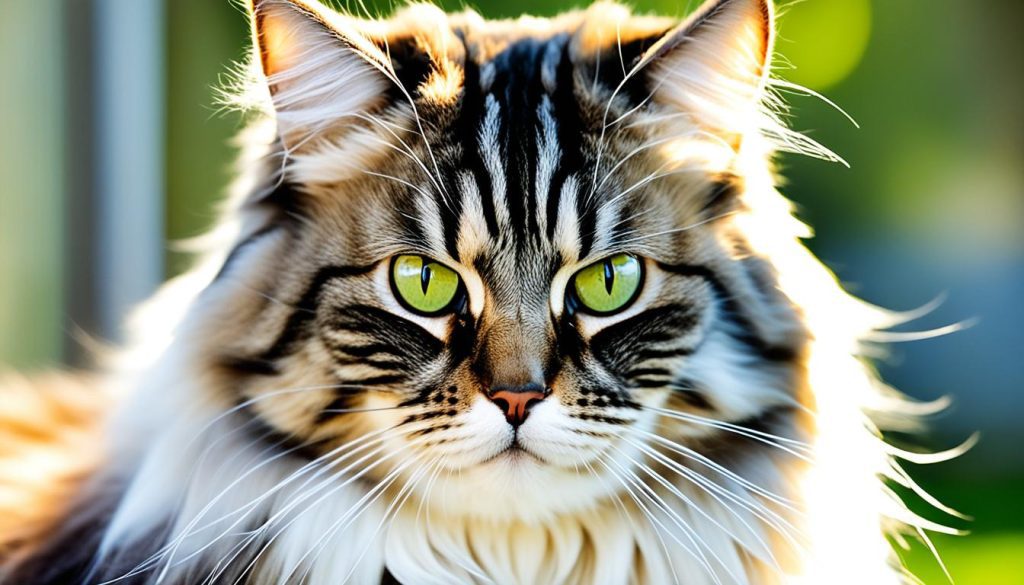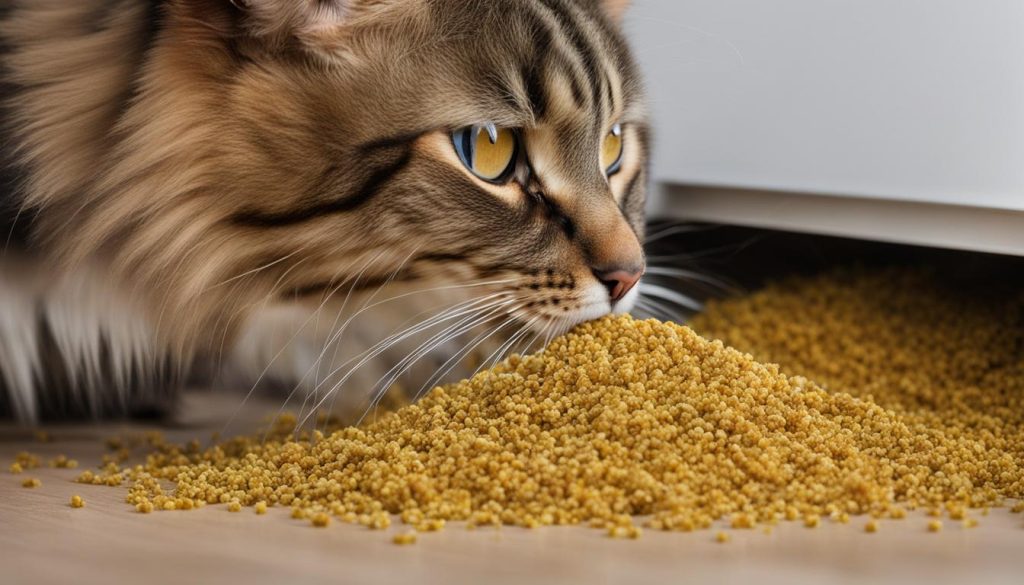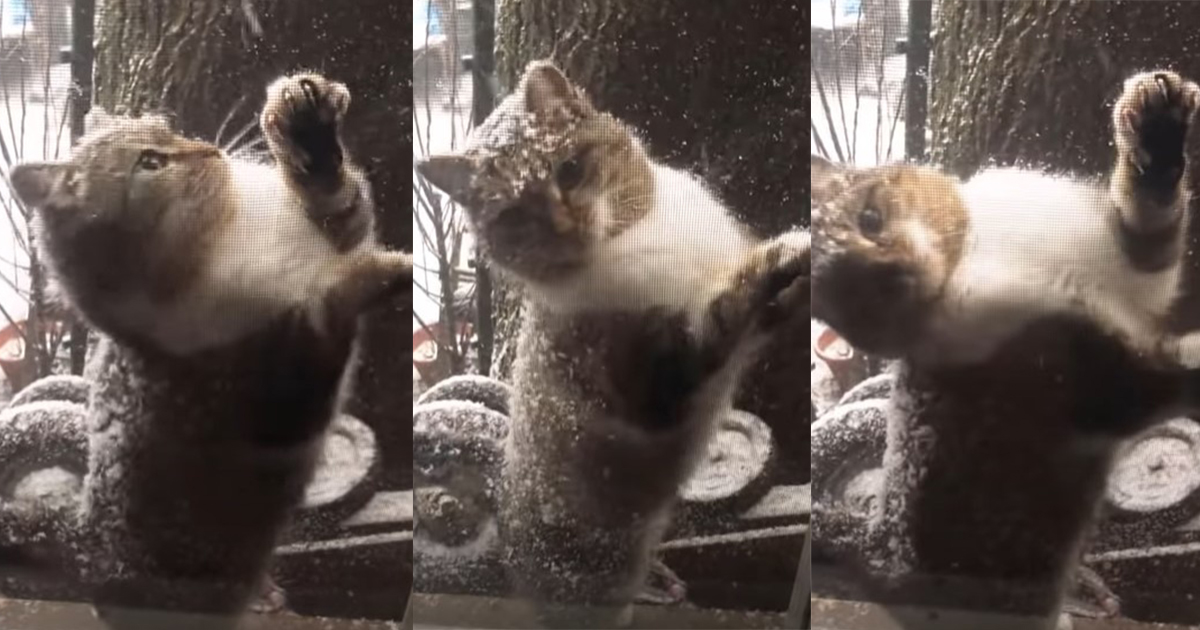Hello, fellow cat lovers! Today, I want to talk about the cost of owning a Siberian cat. If you’re considering bringing home one of these playful and affectionate felines, it’s important to understand the financial responsibilities involved. From initial acquisition expenses to ongoing care, let’s dive into the world of Siberian cat costs.
Siberian Cat Cost
- Siberian cats are known for their playful and friendly nature.
- Their semi-long fur requires regular grooming to prevent matting.
- Siberian cats are prone to hypertrophic cardiomyopathy (HCM), a heart condition that requires regular monitoring.
- Although not hypoallergenic, Siberian cats may trigger fewer allergic reactions.
- The average lifespan of a Siberian cat is 10 to 18 years.
The History and Origins of Siberian Cats
Siberian cats, also known as Siberian Forest cats or Moscow Longhairs, have a fascinating history that traces back to the forests of Siberia. These cats were originally domesticated for the purpose of catching mice in various settings such as stores, monasteries, and farms.
Their natural ability to hunt and their thick, dense fur made them ideal companions in these environments. Siberian cats were valued for their rodent-catching skills and their friendly, sociable nature.
In the late 19th century, Siberian cats were introduced to the United Kingdom, where they quickly gained popularity among cat enthusiasts. Their unique beauty and charming personalities captivated the hearts of many. Since then, they have continued to be sought after as beloved pets in households across the country.
In 1990, Siberian cats made their way to the United States, where their popularity soared. Today, they are cherished by cat lovers for their striking appearance, playful demeanor, and intelligence.
If you’re interested in adopting a Siberian cat, you’ll be pleased to know that there are various breeders and shelters that offer them for adoption. These dedicated individuals and organizations ensure that Siberian cats are given the loving homes they deserve. Whether you’re looking to add a new furry friend to your family or simply want to learn more about this remarkable breed, exploring the options of Siberian cat adoption is a wonderful way to begin your journey.
The Benefits of Siberian Cat Adoption
– Adopting a Siberian cat gives a loving home to a cat in need.
– Adopted Siberian cats often come spayed or neutered.
– Many breeders and shelters provide thorough health checks and vaccinations for their cats before adoption.
– Siberian cat adoption is a rewarding experience, as these cats bring joy, companionship, and endless entertainment into your life.
The Physical Characteristics of Siberian Cats
Siberian cats are known for their unique physical characteristics that make them a striking breed among others. One of their most distinct features is their thick, semi-long fur, which comes in a variety of colors and patterns. This luxurious coat requires regular grooming to maintain its beauty and prevent matting. Brushing their fur one to two times per week will help remove loose fur and keep their coat in pristine condition. Grooming also allows you to bond with your Siberian cat and keep a close eye on their overall health.
In addition to their stunning fur, Siberian cats have bushy tails that add to their majestic appearance. Their tails are not only ornamental but also serve practical purposes, providing balance and aiding in their agility as they navigate their environment. While Siberian cats are generally low shedders, they do experience more significant shedding during the winter and summer seasons. Regular grooming helps to minimize loose fur in your home and keeps your feline friend happy and comfortable.
When it comes to size, Siberian cats are known for their large and sturdy build. Females typically weigh between 3.5 to 6 kilograms (8 to 13 pounds), while males can range from 5.5 to 8 kilograms (12 to 18 pounds). Their size, combined with their muscular physique, gives them a commanding presence. They have big round paws with tufts of fur that add to their overall charm.

The Temperament of Siberian Cats
Siberian cats are known for their unique temperament, making them a delightful addition to any household. With their affectionate and friendly nature, Siberians quickly form strong bonds with their human companions. Whether you’re cuddling on the couch or playing interactive games, these cats thrive on human interaction and love being part of the family.
One notable characteristic of Siberian cats is their high level of intelligence. They are quick learners and enjoy engaging in mentally stimulating activities. Providing them with puzzle toys or treat-dispensing toys can keep their minds active and prevent boredom.
Siberians have an innate athleticism and love to climb and explore their surroundings. It’s important to give them outlets to fulfill these natural behaviors. Consider investing in a tall cat tree or providing perches and shelves for them to climb and survey their domain.
Communication is another aspect of the Siberian cat’s temperament that sets them apart. They express themselves through a range of vocalizations, including chirps, mews, thrills, and purrs. These unique sounds allow them to convey their emotions and desires, adding an extra layer of charm to their already captivating personality.
Furthermore, Siberians are known to be adaptable and get along well with other pets, including dogs and other cats. Their sociable nature makes them great companions for both humans and animals, creating harmonious dynamics within multi-pet households.
If you’re considering bringing a Siberian cat into your home, it’s vital to provide them with plenty of mental and physical stimulation. This includes regular play sessions, interactive toys, and opportunities for exploration. By offering an enriching environment, you can ensure that your Siberian cat remains happy, healthy, and content.
Health Considerations for Siberian Cats
While Siberian cats are generally a healthy breed, it’s important to be aware of certain health considerations. One common condition that affects Siberian cats is hypertrophic cardiomyopathy (HCM), which is a heart condition that affects the heart muscle. Regular screening tests, including blood work and ultrasounds, can help detect HCM early and ensure proper care for your furry friend.

Siberian cats are believed to produce less of the protein that triggers allergies in humans, making them a more suitable option for individuals with allergies. While they are not considered hypoallergenic, many people with cat allergies have reported fewer allergic reactions when exposed to Siberian cats.
When considering adopting a Siberian cat, it’s important to factor in the potential expenses associated with their care. Adoption fees can vary depending on the source, and regular veterinary care is essential to ensure their well-being. Siberian cats also have long and dense fur that requires regular grooming, which can add to the overall expenses of owning a Siberian cat.
While Siberian cats are generally healthy and allergy-friendly, it’s important to be aware of potential health conditions such as HCM. Additionally, consider the adoption costs and ongoing expenses such as veterinary care and grooming when budgeting for a Siberian cat.
Cost of Owning a Siberian Cat
When considering adopting a Siberian cat, it’s important to understand the financial commitment involved. The cost of owning a Siberian cat can vary based on factors such as pedigree, location, and the reputation of the breeder.
It’s essential to consider not only the initial adoption price but also ongoing expenses to ensure that you can provide the best care for your furry friend.
- Food: Siberian cats require a balanced diet to maintain their overall health and well-being. Plan for the cost of high-quality cat food and treats.
- Grooming Supplies: Siberian cats have thick, semi-long fur that requires regular grooming. Invest in brushes, combs, and other grooming essentials to keep their coat healthy and tangle-free.
- Veterinary Care: Regular veterinary visits, vaccinations, and preventive medications are essential for the health of your Siberian cat. Consider the costs of routine check-ups and emergency medical care.
- Breed-Specific Health Issues: Siberian cats are generally healthy, but they can be prone to certain breed-specific health conditions like hypertrophic cardiomyopathy (HCM). It’s crucial to budget for potential medical expenses associated with managing these conditions.
Creating a budget and understanding the financial responsibilities of owning a Siberian cat will help ensure that you can provide the care they need and deserve. Remember, the love and companionship of a Siberian cat are priceless, but being financially prepared will make the experience even more rewarding!
Conclusion
Owning a Siberian cat can be an incredibly rewarding experience, but it’s important to be aware of the associated costs. From the initial acquisition expenses to ongoing care and potential health issues, understanding the financial commitment is crucial. However, the playful, affectionate, and intelligent nature of Siberian cats make them a beloved choice for many cat lovers.
If you’re considering getting a Siberian cat, it’s essential to do your research and find a reputable breeder or shelter. Take the time to understand the specific needs of the breed and be prepared to provide them with the love and care they deserve.
Remember, owning a Siberian cat is not just about the initial cost. It also involves ongoing expenses such as food, grooming supplies, and regular veterinary care. Creating a budget and being financially prepared will ensure that you can provide your Siberian cat with a happy and healthy life.






